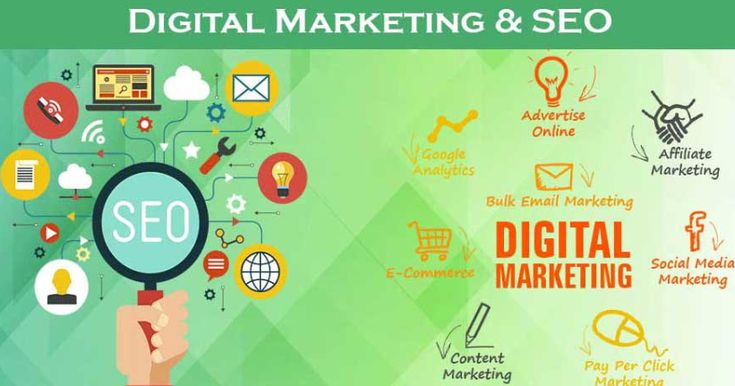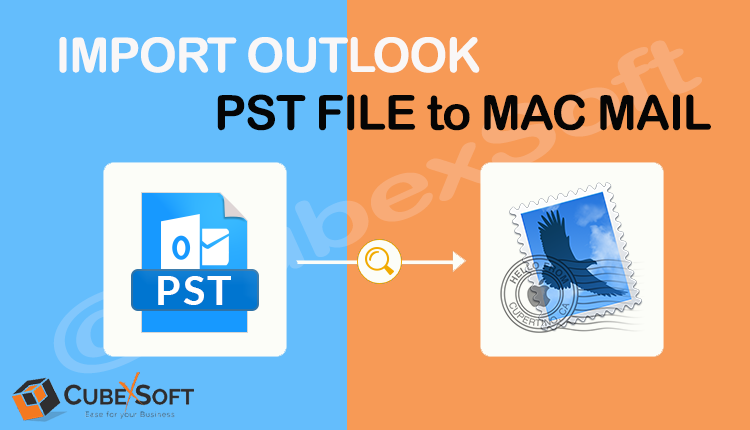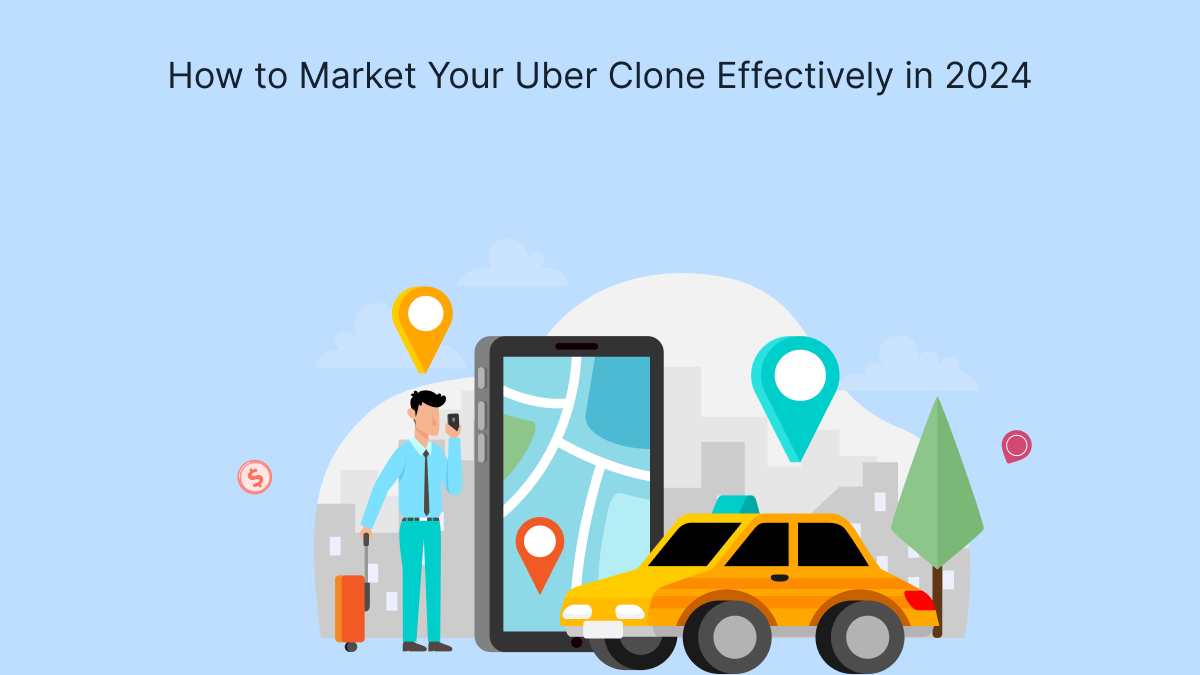Digital marketing is a strategy businesses use to connect with potential customers through online channels. Unlike traditional methods like print ads or TV commercials, digital marketing takes place on platforms where people spend a lot of their time: social media, search engines, email, and websites. By reaching people where they already are, digital marketing helps businesses of all sizes build their brands, boost engagement, and drive sales. In this guide, we’ll break down what digital marketing is and how it works, helping you see how it can play a major role in building your brand online.
What is Digital Marketing?
Digital marketing refers to marketing efforts using digital channels to connect with potential customers. It involves various tactics, including:
- Search Engine Optimization (SEO): Improving your website to rank higher in search engine results so people can find you easily.
- Content Marketing: Creating valuable content that educates or entertains your audience, building trust and authority.
- Social Media Marketing: Using platforms like Facebook, Instagram, and LinkedIn to reach and engage with your target audience.
- Email Marketing: Sending personalized messages to nurture relationships with subscribers and encourage them to take action.
- Pay-Per-Click Advertising (PPC): Paying for ads to appear in search results or on social media to drive traffic to your site.
Digital marketing uses these tactics to help you reach your audience, deliver your message, and persuade them to become loyal customers.
How Digital Marketing Works in Building Your Brand Online
Building a brand online with digital marketing involves a series of planned steps to help your business gain visibility, trust, and engagement from your target audience. Here’s how digital marketing works in building your brand online:
1. Identifying Your Audience
The first step in digital marketing is knowing who your audience is. Every brand has a unique customer base, and understanding their preferences, challenges, and habits is essential. You can create more effective campaigns by tailoring your approach to their specific needs.
2. Selecting the Right Channels
Digital marketing has many channels, but not every one of them is suitable for every business. For instance, if your target audience is younger, social media platforms like Instagram or TikTok may be more effective. If you’re targeting professionals, LinkedIn could be a better fit. Choosing the right channels will maximize your reach and effectiveness.
3. Creating Engaging Content
Content is at the heart of digital marketing. From blog posts and videos to social media updates and infographics, engaging content keeps your audience interested in your brand. Content that provides value, educates, or solves problems encourages your audience to return for more, reinforcing your brand’s credibility and presence online.
4. Search Engine Optimization (SEO)
SEO is a fundamental part of how digital marketing works in building your brand online. By optimizing your website for search engines, you increase the chances of appearing in search results when people search for products or services like yours. SEO can help potential customers discover your business organically and build trust through high-quality content and authority.
5. Leveraging Social Media Platforms
Social media is a powerful tool in digital marketing for building brand awareness, engaging with customers, and even driving sales. By regularly posting relevant content, responding to comments, and interacting with your followers, you can build a community around your brand. Social media also offers the chance for direct feedback, allowing you to understand your audience’s preferences better.
6. Running Paid Advertising Campaigns
Paid advertising, like Google Ads or Facebook Ads, allows you to reach your target audience quickly by putting your brand in front of people actively searching for or interested in your product or service. Paid ads can be an effective part of how digital marketing works in building your brand online, especially when combined with other strategies.
7. Tracking and Analyzing Results
Tracking performance is essential for successful digital marketing. Using tools like Google Analytics or social media insights, you can understand what’s working and where adjustments are needed. Tracking results allows you to improve future campaigns, maximize your return on investment, and build your brand more efficiently.
Benefits of Digital Marketing in Brand Building
Digital marketing provides several unique advantages in building a brand online, including:
- Wide Reach: Connect with audiences worldwide through multiple online channels.
- Cost Efficiency: Digital marketing offers cost-effective methods like social media and content marketing, perfect for businesses of all sizes.
- Enhanced Engagement: By creating interactive content and engaging with your audience, digital marketing can build stronger relationships with customers.
- Measurable Results: Digital marketing allows you to track your progress and adjust your strategies, ensuring a higher success rate.
Online Business Optimization Services and Digital Marketing
A successful brand-building strategy often involves online business optimization services, which help enhance your digital presence and ensure that your digital marketing efforts are as effective as possible. These services focus on optimizing your website for SEO, creating high-quality content, and improving site speed and functionality. By working with online business optimization services, you can streamline your digital marketing strategy and build a brand that stands out online.
Key Components of an Effective Digital Marketing Strategy
To help you better understand what digital marketing is and how it works, let’s break down the key components of an effective digital marketing strategy:
1. Clear Goals and Objectives
Having specific, measurable goals is essential for digital marketing success. Whether you want to increase brand awareness, generate leads, or drive sales, clear objectives guide your strategy and help track progress.
2. Consistent Branding
Digital marketing works best when your branding is consistent across all channels. From your logo and color scheme to your brand voice and messaging, consistency builds recognition and trust with your audience.
3. Audience-Centered Content
Your content should focus on providing value to your audience, addressing their needs, and answering their questions. High-quality, audience-centered content builds credibility and can position your brand as a trusted authority in your industry.
4. Adaptation to Trends and Technology
Digital marketing is an ever-evolving field, with new tools, platforms, and strategies emerging constantly. To stay competitive, businesses should stay updated with trends, experimenting with new platforms and content formats.
FAQs
1. Why is digital marketing important for building a brand online?
Digital marketing is essential for building a brand online because it allows businesses to reach their target audience where they spend the most time—online. With digital marketing, businesses can engage customers, establish credibility, and build long-term relationships without the high costs of traditional advertising.
2. How can online business optimization services help in digital marketing?
Online business optimization services enhance your digital marketing efforts by improving your website’s SEO, boosting site performance, and creating a user-friendly experience for your visitors. These services ensure that your digital marketing campaigns reach their full potential by aligning your website and content with industry best practices.
Conclusion
Understanding what digital marketing is and how it works is key to creating a strategy that will help build your brand online. With the right approach—combining SEO, engaging content, social media, paid ads, and online business optimization services—you can increase your brand’s visibility, connect with your audience, and grow your online presence. Embrace digital marketing, and you’ll discover how this dynamic field can make a significant difference in reaching and expanding your business audience.




